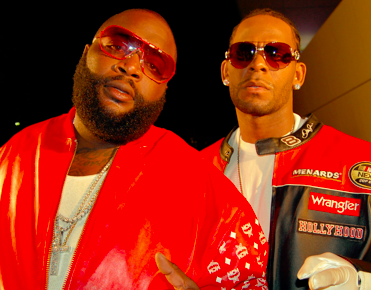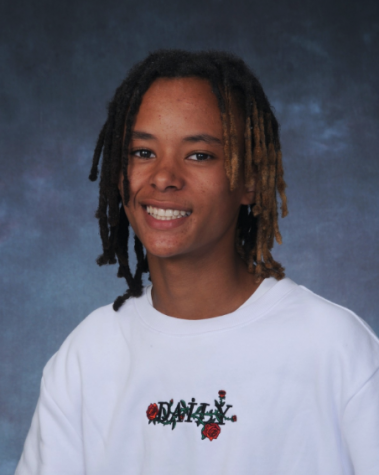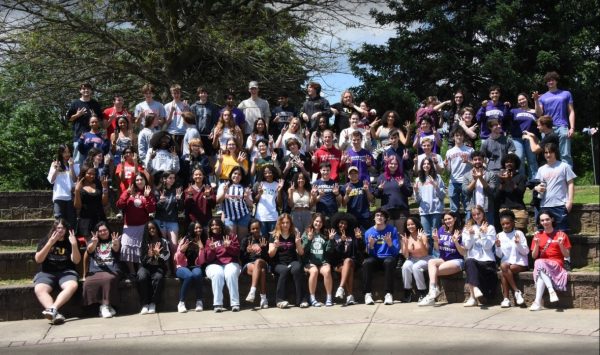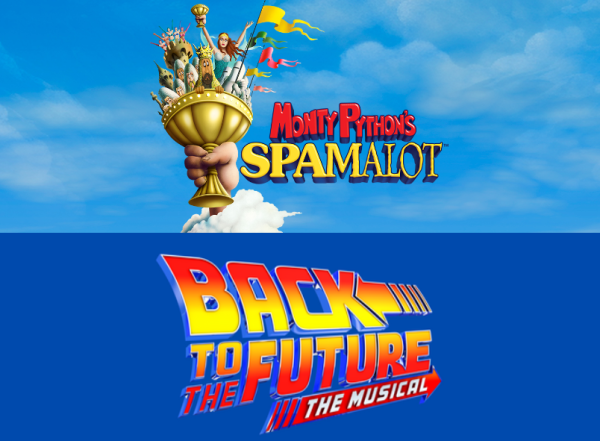Misogyny vs Equality in Rap

As time continues, the interests of people and the world undergo change. In today’s age, social media has claimed its reputation among the teenage generation as the idolized source of new trends, news, and music. Unfortunately, the innovation of social media has been a carrier of discrimination. The horror of misogyny has always been a barrier to peace, equality, and human progression. Modern misogyny has been expressed and manipulated in many new ways, including music.
Through exposure to diverse genres of music, listeners around the world have come to indirectly notice that rap music has expressed the highest levels of misogyny in music. However, although many people find rap lyrics to be unacceptable, a recent national statistical update from USA Today, has found that for the first time ever, rap surpassed rock as the most popular genre among music fans. This study sparks the controversial, yet intriguing question: Do misogynistic lyrics in rap attract young men and women to the genre?
Although many rappers have misogynistic lyrics in their songs, barely any of them aspire to be labeled as such. Drake, one of hip-hop’s biggest names, is often criticized for his derogatory language towards women. In 2012 in a CBS News interview, reporter Katie Couric asked Drake about how he feels about the demeaning of women in rap. Seeming as though he was unsure how to answer the question, Drake responded with various comments, including: “Rap rings elements of comedy”; “Rap has a shock factor”; “Rap has a fine line between fun and wit vs. demeaning”; “Many women scream the ‘shock factored’ lyrics back atthe performer during concerts.”
Drake has the reputation as one of the most popular artists in the world, and people appear to neglect the discrimination in his lyrics, instead focusing on the idea that he is a musical sensation. His fans automatically conclude that he is not a misogynist, and that his lyrics about women are merely for the purpose of comedy and banter. The rap audience around the world have been encouraged to believe that this fine line does exist.
In a confidential interview between me and a student at SSFS, I asked about their opinion regarding the topic as a whole. Their answer was: “Demeaning women in rap has become such a feature [and] culture in rap, that it is one of the only ways to make it into the rap industry.”
In an interview between me and my 17- year old friend Chelsea from South Africa, I asked her five questions regarding her thoughts on rap and misogyny. Although Chelsea’s views on misogyny in rap do not reflect the opinions of all women, her point of view may be seen in other women. My first question was on whether she listened to rap, and she answered that she sometimes did. This prompted me to ask her if she feels offended or uncomfortable when she listens to rap. Chelsea responded that it differs for each genre, because even though misogyny is most noticeable in rap, it exists in all of pop culture. I then asked her to watch the video of Drake, talking about misogyny in rap. After she had finished the video, I pushed her to elaborate on whether she considers there to be a ‘fine-line’ between ignorance and outright misogyny in rap. Chelsea explained that it is difficult to identify a ‘fine-line’, but wherever it becomes an artist’s ethical responsibility to suggest superiority over a woman, it is unacceptable. As a follow up question from the Drake video, I asked her to explain her thoughts on why so many women sing along to these lyrics at concerts, and she told me that for those women, it is incredibly easy to drown in the fun of the music, and ignore its more serious implications can be almost impossible to ignore. To finish off our discussion, I asked Chelsea about how she envisions the future of rap lyrics. She speculated on how rap has negatively changed since its origination, and that even though misogyny is inevitable in pop culture, she hopes that rap lyrics will descend from the dehumanization and demeaning of women.
Misogyny in rap has become such a recurrent feature in pop culture, that rap listeners are starting to neglect and diminish the effect of what these lyrics actually represent. Although people consider there to be a ‘fine-line’ between fun and misogyny, misogynistic lyrics should not even be considered in making music. At this peeking period of rap, misogyny would be hard to extinguish, but to confront and condemn the misogyny now would set a positive trajectory for pop culture.
Unfortunately, upcoming rappers such as Lil Pump, Playboi Carti, and Comethazine, are starting to use these lyrics because misogyny has been casualized and standardized in rap. As rap has progressed to a top genre of music in the US, nobody can claim that all those who listen to rap support misogyny, and nobody can claim that all rappers are misogynistic. However, because demeaning rap lyrics have become tolerated in the music community, more people are becoming desensitized to how misogynism can affect one another. Young rappers should come to the realization that objectifying women is hurtful to many people. Although they are exercising their 1st amendment rights, they are indirectly holding back peace by abusing their rights.
Misogyny in rap has become such a recurrent feature in pop culture, that rap listeners are starting to neglect and diminish the effect of what these lyrics actually represent. Although people consider there to be a ‘fine-line’ between fun and misogyny, misogynistic lyrics should not even be considered in making music. At this peeking period of rap, misogyny would be hard to extinguish, but to confront and condemn the misogyny now would set a positive trajectory for pop culture.
Sources:

Hello! My name is Keletso Rosenberg, and I joined SSFS at the start of my sophomore year. I was born and raised in South Africa, and I moved to the States...





